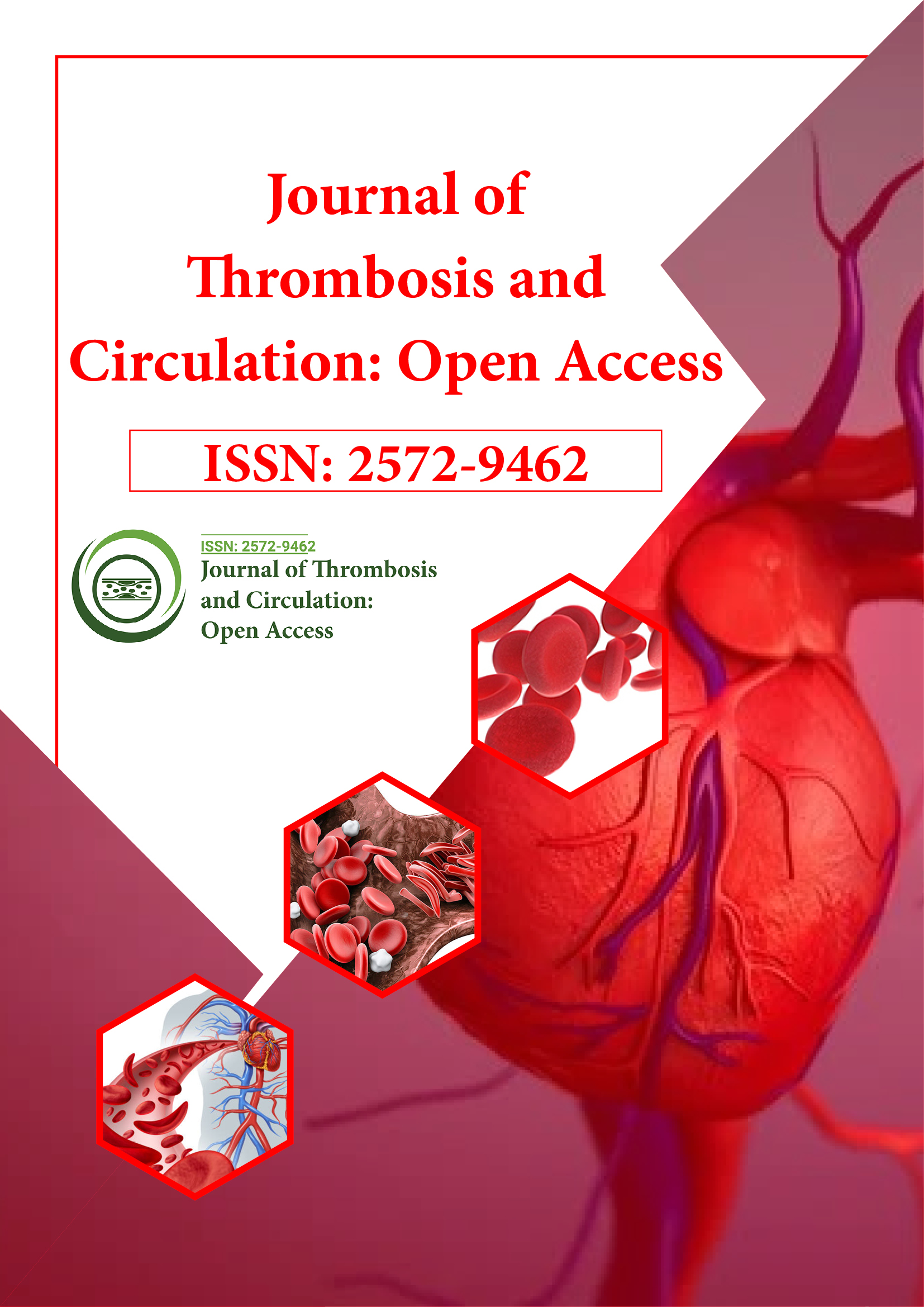Indexed In
- RefSeek
- Hamdard University
- EBSCO A-Z
- Publons
- Google Scholar
Useful Links
Share This Page
Journal Flyer

Open Access Journals
- Agri and Aquaculture
- Biochemistry
- Bioinformatics & Systems Biology
- Business & Management
- Chemistry
- Clinical Sciences
- Engineering
- Food & Nutrition
- General Science
- Genetics & Molecular Biology
- Immunology & Microbiology
- Medical Sciences
- Neuroscience & Psychology
- Nursing & Health Care
- Pharmaceutical Sciences
Perspective - (2022) Volume 8, Issue 2
Duration of Depression and Risk of Cardiovascular Disease
Received: 08-Feb-2022, Manuscript No. JTCOA-22-16339; Editor assigned: 11-Feb-2022, Pre QC No. JTCOA-22-16339(PQ); Reviewed: 25-Feb-2022, QC No. JTCOA-22-16339; Revised: 04-Mar-2022, Manuscript No. JTCOA-22-16339(R); Published: 11-Mar-2022, DOI: 10.35248/2572-9462, 22.8.184
Description
Cardiovascular disease and depression are currently the two leading causes of disability in high-income countries and by 2030 this is expected to be true for all income groups. Increased use of medical services and reduced productivity. In addition, cardiovascular disease and depression have a significant impact on the overall quality of life, especially in patients with heart failure. It can be argued that depression is probably the only most important factor affecting overall quality of life.
Depression is a mental disorder characterized by changes in mood, behavior, and affection regulators. Depression and cardiovascular disease are one of the most impaired illnesses we face. Both of them are very common to the general public and often coexist with the same person.
There is thought to be a two-way relationship between cardiovascular disease and depression:
The proportion of people who have no any depression become depressed after a heart attack or after developing heart failure. Also, people with depression but no history of cardiovascular disease appear to be more likely to develop cardiovascular disease than the general population.
It is somewhat hard to prove that cardiovascular disease directly leads to the development of a first-ever episode of depression. That is because some people who have had previous episodes of depression may not have it formally diagnosed until they see their doctor for heart problems.
“What we can say with certainty is that depression and cardiovascular disease often occur together,” says Dr. Roy Ziegelstein, “About one in five who has a heart attack is found to have depression soon after the heart attack. And it’s at least as prevalent in people who suffer heart failure.”
The prevalence of unrecognized depression in patients with cardiovascular disease has been known for over 40 years. In a 1967 original paper by Win of Australia, 40% of patients with disabilities after myocardial infarction were depressed, many of which were previously unrecognized. Symptoms of depression and anxiety were found in two-thirds of consecutive patients after admission to a cardiac event.
The World Health Organization (WHO) predicts that both cardiovascular disease and Major Depressive Disorder (MDD) will cause the greatest loss of "disability-adjusted life years". CVD is one of the leading causes of death worldwide. However, it is arguable whether MDD is also an independent risk factor for the occurrence of CVD. Since MDD is a potential modifiable risk factor for cardiovascular disease.
Some of the studies explaining the various risk factors examined the vertical association between MDD and cardiovascular disease. Positively relevant studies show that there is a great deal of heterogeneity between methodologies and results. Two studies found a link, but only for older women. Ariyo found an increased risk, but only those with the highest average depression score, while Penninx found a new association with patients with depression but not chronic depression. MDD is actively associated with excess mortality. Luukinen could only establish a relationship between MDD and subsequent sudden cardiac death. However, in a 12-year prospective cohort study of older, institutionalized Australians, depression was not associated with CVD incidence or mortality.
In a screening of more than 5,000 Dutch people aged 55 and over who visited the GP, the prevalence of MDD in this group was as high as 14%, with only 23% being treated with antidepressants. MDD, CVD and their risk factors are common in the elderly. Therefore, in a prospective two-year cohort study, how much is the risk that older general practitioner patients with MDD actually develop cardiovascular events and if so, the increased risk is other than cardiovascular events.
Citation: Touchy G (2022) Duration of Depression and Risk of Cardiovascular Disease. J Thrombo Cir. 8:184.
Copyright: © 2022 Touchy G. This is an open-access article distributed under the terms of the Creative Commons Attribution License, which permits unrestricted use, distribution, and reproduction in any medium, provided the original author and source are credited.
